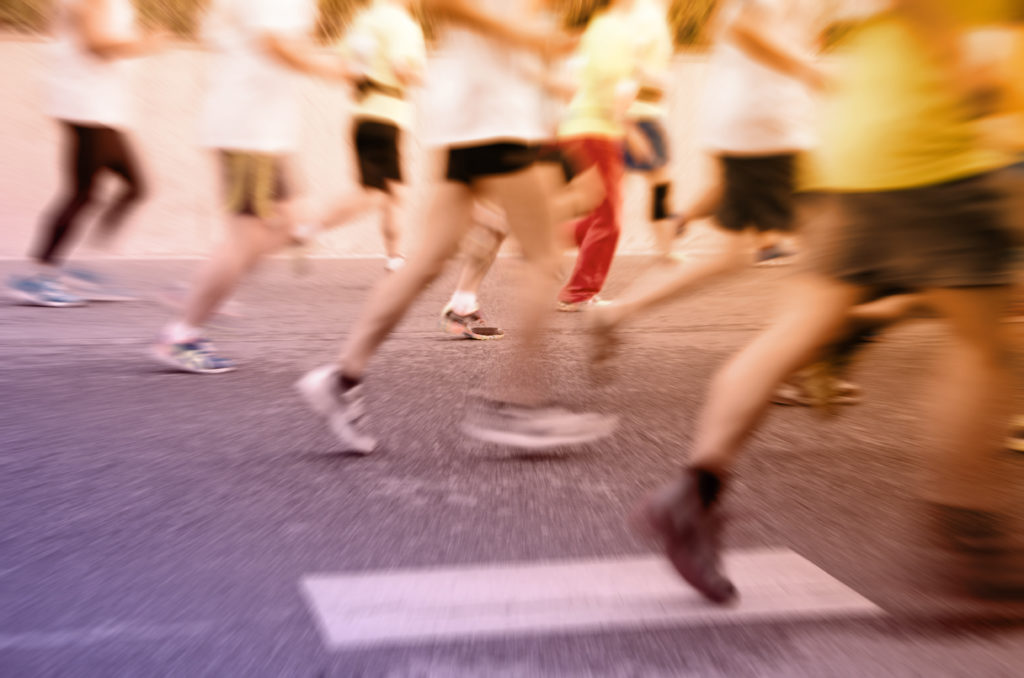Quick Hits
Daily brief research updates from the cognitive sciences

This is an older study (2017) I came across and found fascinating. As many of you regular readers will know I have reported many times on the benefits of exercise. But this study was fascinating in that it looked at the contagion effect of exercise i.e. do people affect each other with the exercise bug?
To answer that question the researchers analyses data from a global network of 1.1 million runners over a period of five years and in addition 3.4 million social network ties. That’s a lot of data! What did they find?
Well, yes there is social contagion, runners do infect each other but the specifics are quite interesting. For example, it was found that both men and women influence men (men more than women) but that men do not influence women. Another interesting influence is that of being faster or slower runner. It was found that those who were slightly slower of faster influenced other most.
Read the paper for more interesting insights but of note is that exercise (in this case running) is infectious but how infectious depends on certain other factors such as closeness, gender, and how good you and your friends are – or not.

Andy Habermacher
Andy is author of leading brains Review, Neuroleadership, and multiple other books. He has been intensively involved in writing and research into neuroleadership and is considered one of Europe’s leading experts. He is also a well-known public speaker speaking on the brain and human behaviour.
Andy is also a masters athlete (middle distance running) and competes regularly at international competitions (and holds a few national records in his age category).
Reference
Aral, S., and Nicolaides, C. (2017).
Exercise contagion in a global social network.
Nat. Commun. 8.
doi:10.1038/ncomms14753.
More Quick Hits
Unique Social Genes in Human Beings
Quick HitsDaily brief research updates from the cognitive sciences ne differentiating factor with human beings is our pro-sociality. This means we are a social species, and this sociality is seen in our ability to empathise, be socially tolerant,...
Want to Live Longer? Be Optimistic!
Quick HitsDaily brief research updates from the cognitive sciences e probably all know some people who are particularly pessimistic - always putting a negative side to things and expecting the worst outcomes. We probably also know some people who...
How Having Had COVID-19 Negatively Impacts Performance at Work
Quick HitsDaily brief research updates from the cognitive sciences ’m sure we’re all aware of the various negative aspects of having contracted COVID-19 such as long COVID but also the brain fog that seems to have been a feature that many people...
Narcissistic Leaders Block Knowledge Flow and Cooperation
Quick HitsDaily brief research updates from the cognitive sciences arcissism is considered one of the three dark-triad traits and something that has been reported as being common in senior leaders. The important question is can and does this hinder...
The Science of Exposing Liars
Quick HitsDaily brief research updates from the cognitive sciences he one place that we can consistently catch people lying is in job interviews. And the question has long been how do you catch out these liars? The answer is you need to outsmart...
High Traffic Noise at School, Slower Cognitive Development
Quick HitsDaily brief research updates from the cognitive sciences ho would have thought that traffic noise could impact cognitive development of kids? Well according to this recent piece of research it can. Are you sure? Well, these researchers...






